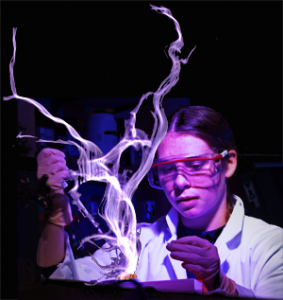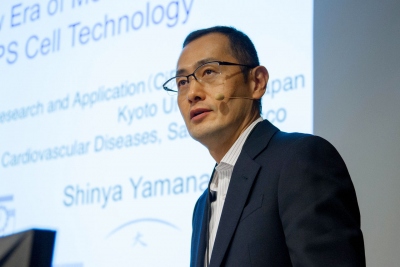 “We’re in for a thrill,”
“We’re in for a thrill,”
If religions are based on stories of miracles, this account of a symposium recognizing the winners of the 2014 Breakthrough Prizes is biblical.
Chancellor of UCSF, Susan Desmond-Hellman, MD, MPH, started the meeting off saying “We’re in for a thrill.”.
We Did not know what cancer was!
Bert Vogelstein (Johns Hopkins) started by pointing out that 40 years ago when Richard Nixon declared “war on cancer,” the scientific community “didn’t know who the enemy was.”
Robert Weinberg (MIT) presented a history of cancer biology beginning with the discovery of the first oncogenes ,,, viral like genes that cause cancer. We have now cured some cancers because we can target those genes with vaccines or drugs.
Vogelstein explained how we have identified about 150 driver genes that exert their effects in about 12 pathways. Now we have moved past the “conventional warfare” of chemotherapy to targeted therapies, and have recently been “recruiting the allies” of the immune system. But it is crucial, he said, to begin “pre-emptive strikes.”
Lewis C. Cantley (Weill Cornell Medical College) showed his pathbreaking research on the PI3K pathway, which regulates insulin signaling but also plays a role in numerous cancers as well as diabetes and obesity. Cantley presented compelling clinical anecdotes on the promising response seen in some patients to inhibitors of the PIK3 pathway as well as a sister pathway, mTOR. In a provocative conclusion he mused, “Could metformin” – one of the most common drugs used to treat type 2 diabetes – “be our best cancer drug?”
Charles L. Sawyers (Memorial Sloan-Kettering Cancer Center) recalled the first clinical trials of Gleevec, a drug that was designed specifically to treat Philadelphia chromosome-positive chronic myelogenous leukemia. The results in patients, he said, “were the most miraculous thing I’d ever seen.”
Some patients are becoming resistant to Gleevec. It took 41 years from the first discovery to the clinical use of Gleevec, but only 5 years to release a new drug that overcame Gleevec resistance.
More miracles Are coming from new books of the bible.
The miracles of religions are elated in their stories, their bibles. Eric S. Lander (Broad Institute of MIT and Harvard) talked about the genomic revolution. Once, he said, “the only data that mattered were in your lab notebook. Today, almost every experiment is based on vast amounts of data housed elsewhere.”
If there is a God, that data is a vast insight into the meaning of life. Lander’s talks showed how, since the time of Nixon’s war, we have gone from the discovery of disease genes in families, populations, and tumor tissue, to the miraculous decoding of the genome itself, including learning the language that regulates expression of the genes causing not only cancer but the basic rules that define each species, including man.
More than 3,000 genetic loci have been implicated in more than 225 human diseases, he said, and the rate of discovery of cancer-associated genes shows no sign of slowing down anytime soon.
And now we can create our own tissues

Shinya Yamanaka, (UCSF and Nobel laureate) discovered the genes that make stem cells. … each of these cells can give rise to a human, or more practically to a human organ. Hans Clevers, (Hubrecht Institute in The Netherlands) showed miraculous intestinal “organoids,” miniature cellular assemblages with structural and anatomical features that mimic the intestine.
The winners of the 2014 Breakthrough Prizes in Life Sciences had been announced the previous evening, and the symposium’s previous winners took the stage and offered their views on the past, present, and future prospects of biomedical research.